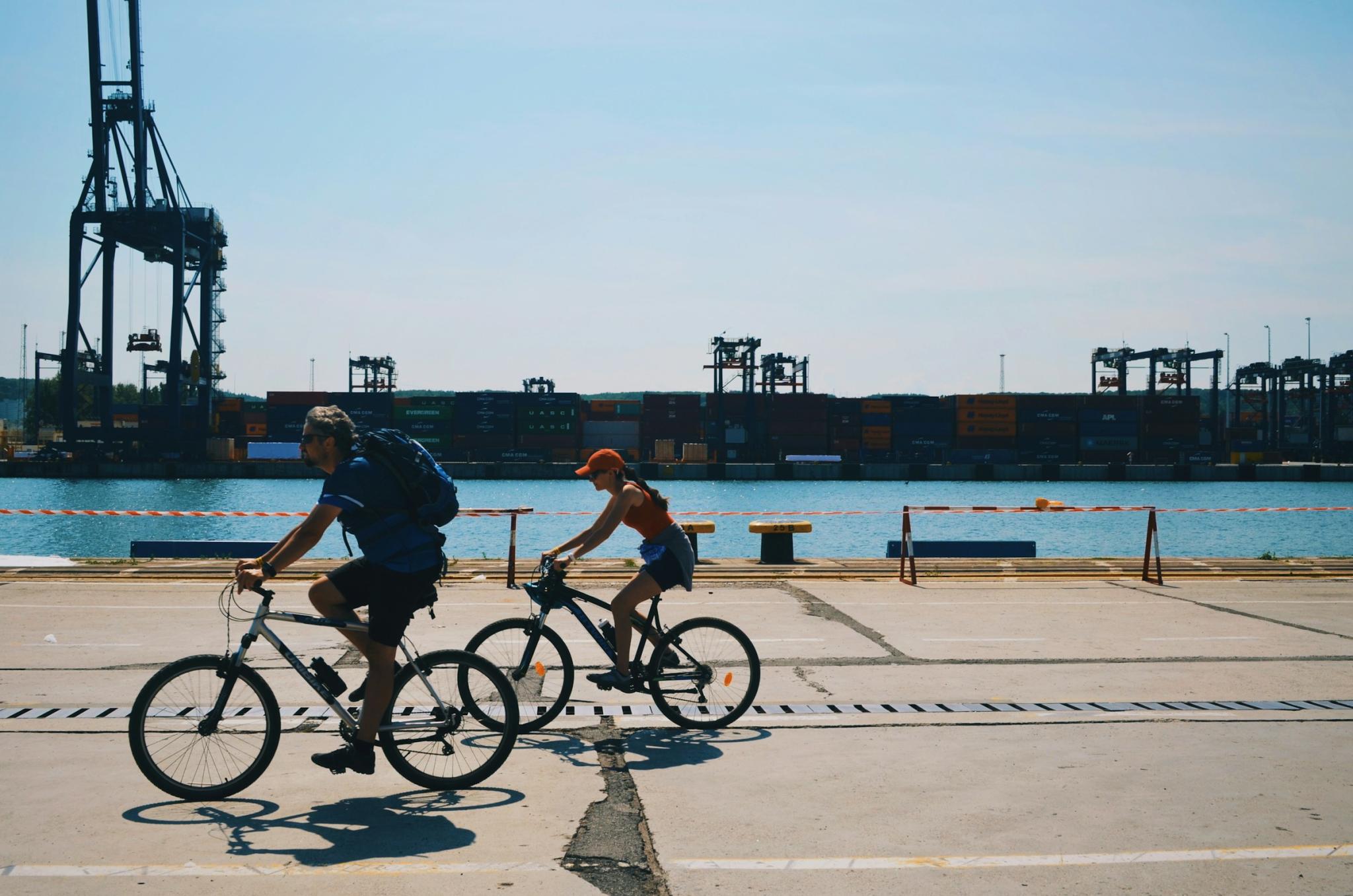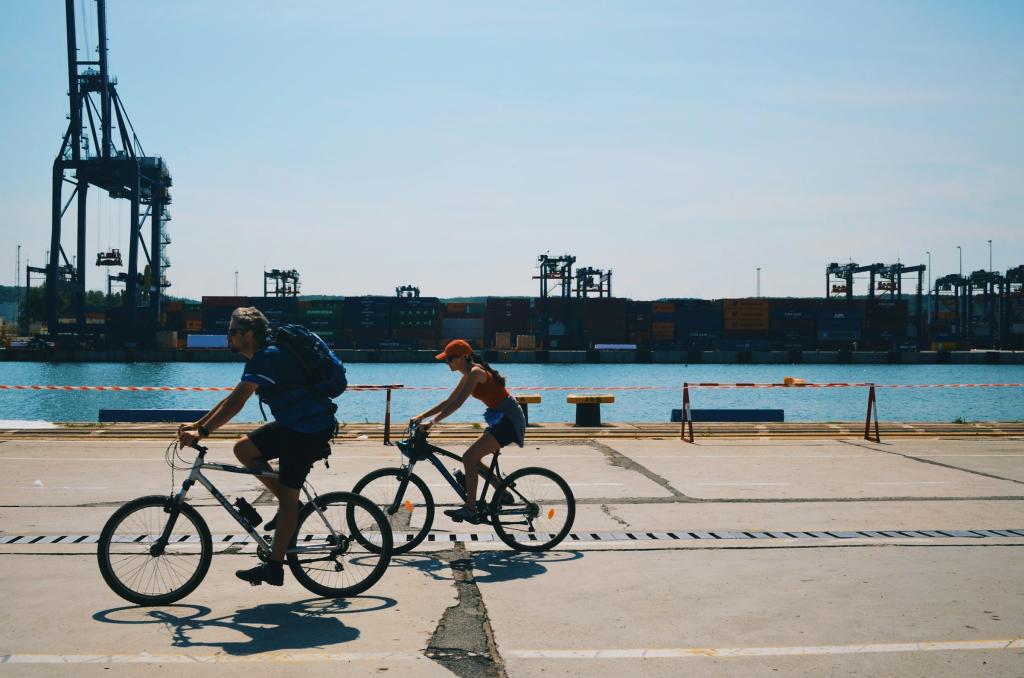PCF Talk #53 – Agenda Monthly Meeting – Hybrid
This is a hybrid event, please join in person, or via the zoom link below!
Note: All parts apart from the street interviews are available for online participants.
9:00 - 9:15
Introduction of the Day
I Public Event
Theme: Human-centered Port City Transitions
The thematic research group, co-led by Paul van de Laar and Maurice Jansen, seeks to center human-scale perspectives in port city territories. Port cities are envisioned as a “common ground” where stakeholders collectively assume responsibility and co-create future pathways. The group promotes a research agenda that emphasizes stakeholder inclusion, bottom-up approaches, and open innovation for an inclusive and resilient port city ecosystem.
This public event invites participants to explore a human-centered approach to port-city transitions with a focus on the need for deeper community engagement.
The morning will open with an introduction to our thematic research group on “Human-Centered Port City Transitions,” followed by an overview of our latest project on cultural resilience in the port city of Rotterdam. We invite participants to take to the streets of Rotterdam’s Afrikaanderwijk neighborhood to capture and reflect on stories about how locals view the port’s presence in their daily lives and its role in the city. We will then conclude with insights from Renée Rotmans of the Port of Rotterdam, who will share her experience leading the “Inclusieve Haven” initiative to foster inclusivity and diversity across Rotterdam’s port community.

9:15 - 9:30
Introduction: Thematic Research Group “Human-Centered Port City Transitions”
9:30 - 9:45
Project Overview: Views from the Outside: Towards a Resilient Port City Future in Rotterdam
9:45 - 10:30
Street Interviews “How Do You See the Port in the City?”
10:30 - 11:00
Sharing and Reflection
11:00 - 11:10
Break
II PCF Community Engagement
11:10 - 11:40
Presenter: Renée Rotmans (Port of Rotterdam)
Title: “Inclusive Port”
Renée Rotmans is currently working as program manager social innovation at the Port of Rotterdam. Her passion for the social aspects, especially the human capital aspects in the Port of Rotterdam, drives the projects that she manages. One of the new projects is the neighborhood port hubs in the South of Rotterdam to activate people in social-economic areas to work in the Port of Rotterdam. She focuses on creating a good port working environment for everyone, where diversity, inclusion, sustainable employability, job satisfaction and (re)education are central themes. Besides, she finishes her PhD in strategic HR practices under the lead of Prof.dr. H. Volberda.
III PCF lighthouse projects and new opportunities
11:40 - 12:00
Book Presentation by André Tavares: "Architecture Follows Fish, An Amphibious History of the North Atlantic"

Architecture Follows Fish is set in the North Atlantic, and its protagonist is fish. In this book author and architect André Tavares explores the notion of fishing architecture, a concept coined to describe architectural practices that are spawned by fisheries. To encompass the scope of fishing architecture, and to establish the connections between marine ecology and architectural practice, the book oscillates between different continents, centuries, and species. Fisheries are unique, and this book sheds light on that uniqueness through an articulated narrative and a wealth of iconography.
Up until now there has been no history of architecture from the perspective of fish, although there are counterparts for meat, timber, oil, and many other industries. Tavares provides a counternarrative to the traditional history of marine environments, which tends to focus on water ecosystems, and instead forms a bridge between what happens at sea and what happens on land. The hope is that, after reading this book, readers will better understand life in the sea in relation to urban growth and terrestrial landscapes.
About Cultuur&Campus Putselaan:
Cultuur&Campus Putselaan is an initiative started by the 4 higher educational institutes in Rotterdam and the municipality of Rotterdam that aim to make higher education more accessible in the South of Rotterdam, focusing on creativity, arts and culture. We envision an accessible and vibrant hub for innovation, rooted in experiential collaboration between the local community and educational institutions. By integrating cultural learning, creativity, science, and entrepreneurship, the campus will serve as an open platform for interdisciplinary education and sustainable transitions. Through co-creation and reciprocity, both the institutions and the neighborhood will learn and grow together. This exchange will contribute to neighborhood resilience while becoming an integral and connected part of the surrounding area, ultimately serving as a model for future initiatives across Europe.

